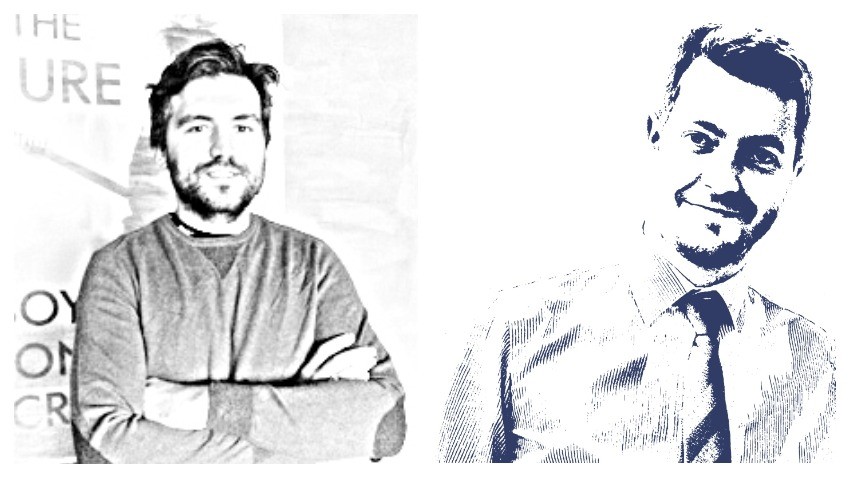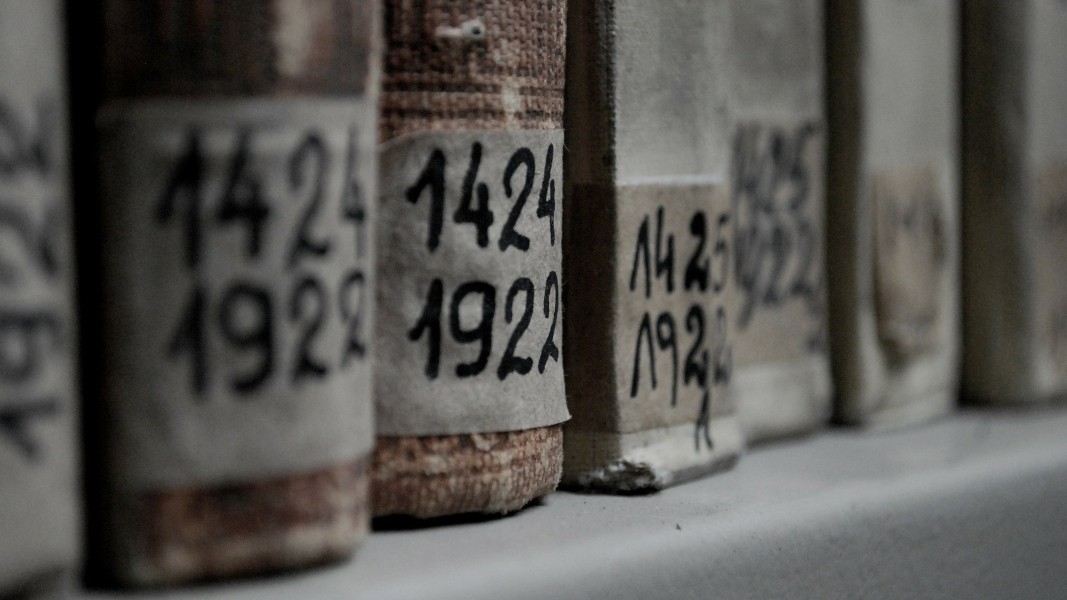What family line are we descended from, who was its founder and have they left a mark on Bulgaria’s history? The archives preserved at approximately 8,000 churches scattered across the 13 dioceses in Bulgaria are an invaluable source of information. Some of these records, describing marriages and baptisms over the years, are kept at regional and central state archives offices.
Two young historians have taken on the challenge of tracing, studying and digitizing these fragments of the past – Simeon Popov and Philip Philipov. Their project, called “Ancestral memory 2020” looks like taking 5 to 10 years, but the work does not worry them. According to Philip it can be fun if this is something you really are interested in:
“You have to travel all over Bulgaria but in many parts these archives have either disappeared or have been destroyed,” the historian says. “Not all churches have them, that is why the sooner we start the search the higher the probability of rescuing the records. These are documents of enormous national value, that is why we took up this challenge. People usually know their lineage back to their great-grandfather, and I don’t know if this project is going to change that. Still, it could be useful to the coming generations.”
Interest in genealogy has been growing in Europe and the world. There are many websites now with information from church records and censuses from different countries.

“Here, in the Balkans, which were part of the Ottoman Empire, many of these records are missing. Church records, if such exist, are 19th century litanies and books, very few are from earlier periods. There are earlier records in Zograf Monastery (the Bulgarian Christian Orthodox monastery on Mount Athos – editorial note) which we shall also describe and post to the website. Many records from towns and villages are in Istanbul, but they have rarely been studied or not at all.”
Thanks to his work on the project, Philip found out a great deal about his own ancestors. He found out that they are mostly from Macedonia.
“People tend to think that family history is a simple thing. You have a mother and a father, you know where they were born, you know where your grandfather came from. And you assume that that is where your family is from. But most often than not, that is not true. The truth is there have been mass resettlements, people travelled often before and after the end of the Ottoman Empire. If you start searching archive records, or have the money to take a genealogical DNA test at a US institute, there are many fascinating stories that can be revealed that are well worth the effort. The more you know about the past of your family lineage, the stronger that makes you now and in the future.”
 The lessons from the past show that Bulgarians are not interested enough in their history, that is why they can be misled. The historian says that the reason is a simple one – “a rootless tree is easy to manipulate”.
The lessons from the past show that Bulgarians are not interested enough in their history, that is why they can be misled. The historian says that the reason is a simple one – “a rootless tree is easy to manipulate”.
Working with archive documents is nothing new for Simeon and Philip. A few years ago they created the website Sofia Remembers. The website offers information about prominent individuals from the country’s past buried in Sofia’s central cemetery. The graves of 10,000 of them have been mapped, and the number is growing. An interesting fact they found out at the start of their work was that the cemetery has been functioning since the late 19th century but that the first preserved records are from much later – after 1931.
Photos: Pixabay, personal archive
One frosty November morning in 1917, as World War I was raging, a Zeppelin L 59 took off from the air base near Yambol bound for Tanzania. The purpose of the flight was to deliver ammunition and materials to the German military units in a remote..
October 27 marks the 165th anniversary of the birth of Academician Aleksandar Teodorov-Balan, who was the first theorist of the Bulgarian literary language, phonetics and grammar. He was born was born in 1859 in the village of Kubey, Bessarabia...
Over 150 exhibits from 14 Bulgarian museums will take part in an exhibition entitled "Ancient Thrace and the Classical World" . The exposition will be opened on November 3 at t he Getty Museum in Los Angeles and will continue until March 3, 2025...
The head of the statue of Tyche, the goddess of Philippopolis, has been discovered in the Episcopal Basilica in Plovdiv, said the head of the..

+359 2 9336 661
